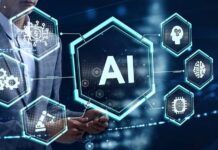On The Industrial Internet of Things (IIoT)
By Inyene Ibanga
TECHDIGEST – Minerals are a major source of income for many countries. They are the raw materials that drive the global economy. Most developing countries depend on these resources for economic development.
Like in most other industries, technological innovation is disrupting the mining industry. Emerging technologies are offering a variety of innovative opportunities within the mining industry.
In recent times, the mining/extractive industry is experiencing the transformative impact of rapid technological innovation. In other words, these technologies are having a fundamental impact on the mining sector.
Automation and remote capabilities, digitisation transformation, sustainability and smart collaboration have been identified as the foremost trends that are revolutionising the mining industry.
The Industrial Internet of Things (IIoT) is one of the new technologies that have the ability to transform the mining industry. IIoT brings significant increase in the efficiency and productivity of mining operations. It refers to interconnected smart sensors, instruments, and other devices networked together with the industrial applications of computers, to enhance manufacturing, mining, energy management and diverse industrial processes.
Also known as the Industrial Internet or Industry 4.0, IIoT uses the power of smart machines and real-time analytics to capture and analyse data in real time, and communicate important information that can be used to drive industrial processes faster and more accurately.
Some of the latest technologies in the mining industry include autonomous vehicles, automated drilling and tunnel boring systems, drones and smart sensors, spatial data visualisation (geo-spatial), visual reality, augmented reality, GIS, and artificial intelligence.
As a driving force of industrial revolution, IIoT is contributing significant benefits to various types of industries, whether small businesses, end-users, or large scale businesses. IIoT is the key to processes such as predictive maintenance, enhanced field service, energy management and asset tracking in the solid mineral mining sector.
With the massive switch to remote services, mining/extractive companies are adopting Industry 4.0 or Fourth Industrial Revolution solutions to automate operations for improved productivity, reduced equipment downtime and costs, predictive maintenance, and enhanced safety for mine personnel.
Digital applications remotely monitor the condition of mines and mineral processing plants to offer a complete online view of automation, instrumentation, electrical, mechanical or process equipment.
Read Also:
This allows specific maintenance-oriented algorithms to help predict and alert users to upcoming maintenance needs and possible equipment failures, as well as labour, travel and electric needs.
A report by McKinsey & Company estimates that mine digitalisation could save $373 billion by 2025, while also raising productivity and safety, and cutting down waste. This is an acknowledgment that digitalisation is vital to the future of the mining industry.
Moreover, the World Economic Forum (WEF) estimates that autonomous machines will be commonplace in the mining sector by 2025. With these machines operating round the clock every day, at high levels of productivity and with lower personnel costs, it could add $56 billion in value to the industry.
Africa’s largest mining companies are based in South Africa, Angola, Zimbabwe, Namibia, Lesotho, DR Congo and Sierra Leone.
Following Nigeria’s over-dependence on oil and gas for revenue, the solid minerals mining industry is under-developed, as these abundant natural resources are still untapped. As such, the sector accounts for only 0.3 per cent of its gross domestic product.
While the Federal Government is taking steps to diversify the economy, it is yet to revamp the mining sector so as to harness the abundant reservoir of solid mineral wealth that nature had deposited in the country.
Coal, gold, iron ore, uranium, limestone, bitumen, columbite, rock salt, granite, gypsum, and gemstones (emerald, topaz, sapphire, ruby, amethyst e.tc.) are among the rich mineral resources that are yet to be fully harnessed.
However, mining industries in other parts of the world are turning to emerging technologies, particularly, the industrial internet of things to reshape the operations and management processes in the sector.
But the reverse is the case in Nigeria, as the industry is still holding onto the traditional methods of mining, which depend on crude equipment and the use of artisans in the surface mines.
I am of the view that government needs to prepare and respond to the technological shifts in the mining sector in order for all stakeholders to achieve shared value from the industry.
Besides, the financial benefits of increased efficiencies and productivity in the sector, the shift to new technologies would offer employment and investment in local communities. Also it would create opportunities for individuals to fit into low-paying, low-skilled jobs and high-paying, high skilled jobs, depending on the level of technological skills.
Agreed, one of the largest impacts that technology will have on the mining sector is on the workforce. This is because automation and robots are taking away jobs. But technology has introduced new fields outside the core competencies.
Such new fields as biochemistry, bio-engineering and computer science are becoming pivotal to the mining industry. It is envisaged that advancements would open up more opportunities for educated and skilled workers and for the existing workforce to be trained to take on new technologies.
Given the inspiring impact of digital technologies in different sectors of the economy, relevant departments and agencies under the Ministry of Science and Technology, and that of Mines and Steel Development should hasten action towards collaboration with the Ministry of Communications and Digital Economy and formulate clear policies for integration of new technologies and innovation to economically harness the untapped solid mineral resources beneath our motherland.
Inyene Ibanga writes from Wuye District, Abuja.




















